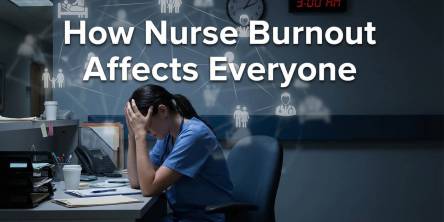Keeping Hospitals Healthy: Why Dust Extractors Equipments Matter

Hospitals are bustling spaces where many people visit and leave every day. Nurses, doctors, visitors, and patients are constantly strolling through the hallways. With all the feet moving about, dust could be sprayed and tossed throughout the air. For the majority of places, dust isn't too big of a problem. However, as per experts at CGS Equipment for Hospitals, limiting dust is crucial. Let's examine how dust can create problems in hospitals and the ways dust extractors, which are specially designed dust extractor equipment, aid in keeping hospitals clean.
What's Wrong with Dust?
At first glance at first, dust settling in the corners or on the window sill doesn't look too scary. It's nothing more than tiny bits of skin and dirt floating around, don't you think? In hospitals, however, dust is much more harmful than it appears.
The air circulates throughout the entire building that is why tiny pieces of dust are scattered throughout. This includes bacteria and germs which live on dust. People with weak immune systems can become sick by breathing into these bacteria. Everyone doesn't want that.
The various chemicals used to clean hospital equipment can also be trapped in dust particles. If staff or patients breathe in this dusty air it could trigger allergic reactions. This is not a good thing.
Imagine where dust accumulates on chairs, floors, beds, beds, medical equipment and many more. Janitor's try to clean the dust off of these areas however dust sneaks up and will come back. The more dust builds up, the greater chances of employees or employees inhaling something which makes them sick.
Even though a bit of dust in your home may be overlooked, ensuring that dust is controlled within hospitals is a huge problem. It's about safety and health. Hospitals require strong helpers to ensure that dust is kept under control Enter dust extractors.
Read more: How IoT Healthcare Services Are Transforming Patient Monitoring and Treatment
Super Extractors to the Rescue.
Dust extractors are like giant, industrial strength vacuum cleaners made specially for big buildings like hospitals and factories. They have extra strong suction to basically inhale dust, dirt, and allergens.
Here's how they beat dust:
First, dust extractors have much bigger motors than regular old vacuums. These motors create super powerful suction that can lift and pull in even tiny pieces of dust. No speck is safe from a dust extractor.
Next, they have special heavy-duty filters called HEPA filters. These catch and trap dust particles as small as 0.3 microns. To picture how tiny that is, a single human hair is about 60 microns thick. So you can see why HEPA filters are vital for capturing dust with hidden germs and chemicals on it.
Big tanks in extractors hold all the sucked-up dust so janitors don't have to constantly stop and empty them out. Some models even have wheels so they can be rolled all around the hospital halls to wherever they're needed next. No dust is left behind.
With all this dust-destroying power, it's easy to see why hospitals rely on extractors to stay clean and healthy.
Spreading the Health: Where Extractors Do Their Work
Once you've figured out the capabilities of dust extractors Where do they perform to their fullest in the hospitals? The answer is simple all over the place.
People spend a lot of their time in their rooms which is why it's vital that countertops, floors and furniture are cleaned frequently and thoroughly. Extractors come with attachments for brushes, hoses, and wands that are able to reach the nooks and crevices on sinks, beds and under chairs. You can't hide in these machines.
Vents and ducts for air are among the most troublesome areas. Dust likes to hide in these areas and then the airflow sloughs all over. Extractors are excellent for cleaning HVAC systems, so dust won't be spread across the entire structure.
Even hallways and waiting rooms require regular cleaning. With the constant movement of people between rooms, the floors can become dusty quickly. Extractors are ideal for large areas with high traffic. Their huge tanks ensure less time is spent emptying and more time cleaning.
A good extractor is able to handle large-scale dust anyplace - even areas of construction that are crowded. From bedrooms for patients to tiny cracks in machinery, extractors for dust are essential to keep hospitals clean.
You May Also Like: Time & Attendance Software in Healthcare Industry: Need of the Hour
Picking the Perfect Model
There are lots of different dust extractors out there. For hospitals, look for models with:
- Strong motors to handle tough hospital dust
- Hepa filters that trap tiny germs and allergens
- Big tanks so they need emptying less often
- Attachments for reaching any space
- Quiet operation to use near resting patients
- Trusted brands also used by professional cleaners
Conclusion
There is no way to get the entire hospital spotless by itself. It is a team effort of diligent housekeepers with the correct equipment, such as high-quality dust extractors in the correct locations. With the aid of these powerful dust extractors hospitals can create the healthiest and cleanest environment for visitors, patients, and employees. With modern technology dust has no chance.
Similar Articles
Explore the biggest health trends that shaped 2025, from personalized nutrition to matcha and recovery—plus what wellness trends are coming in 2026.
Winter is a season when the body needs extra nourishment, warmth, and immunity support. According to Ayurveda and modern nutrition science, dry fruits play a vital role in maintaining health during cold weather.
Most people think health problems start suddenly. One day you feel fine, the next day something is wrong. In reality, most health issues develop slowly .They grow quietly in the background while life keeps moving.
The start of a new year is a natural time to pause, reflect, and think about how you want to feel in the months ahead. For those over 60, a fresh start does not mean setting unrealistic resolutions or making drastic changes.
Picture this: You're parked at your workspace, battling to focus on what should be a straightforward five-minute task. That afternoon slump? It's demolishing you today.
Joint pain and arthritis are common health issues that tend to become more intense during the winter season
Discover the benefits, challenges, and future of locum medical jobs. Learn how locum recruitment agencies support flexible, diverse career opportunities for healthcare professionals seeking dynamic work environments.
Burnout in the healthcare environment is a significant and growing crisis.
NAD+ therapy restores cellular energy, enhances metabolism, and promotes anti-aging by supporting DNA repair and improved overall vitality.









